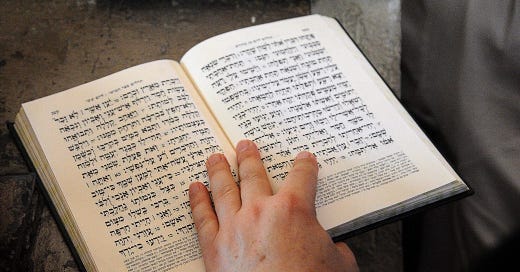The Hebrew Bible As A Self-Critical National Document
Self-Criticism As A Testament Of Trustworthiness
The Hebrew Bible stands out among ancient texts for its remarkable self-criticism of the Jewish people and their leaders. This characteristic not only sets it apart from other historical and religious narratives but also enhances its credibility as a trustworthy document. Let's explore why this matters and how it compares to modern historical narratives.
Unflinching Portrayal of Flawed Heroes
The Hebrew Bible doesn't shy away from depicting its most revered figures in a less-than-flattering light. Here are three examples:
Moses, the great liberator of the Israelites, is portrayed as a murderer who killed an Egyptian and fled into Midian. Later, his anger leads him to disobey God by striking a rock instead of speaking to it, resulting in his prohibition from entering the Promised Land.
King David, celebrated as Israel's greatest king, is shown committing adultery with Bathsheba and orchestrating the death of her husband, Uriah, to cover up his transgression. The prophet Nathan confronts David, exposing his sins and pronouncing divine judgment.
Samson, known for his legendary strength, is depicted as a womaniser who repeatedly breaks his Nazirite vows. His involvement with Delilah, a prostitute, ultimately leads to his capture and death at the hands of the Philistines.
These raw, unvarnished accounts stand in stark contrast to how many cultures portray their national heroes. They demonstrate a commitment to truth-telling that transcends the desire for a sanitised narrative.
National Self-Critique
Beyond individual figures, the Hebrew Bible often criticises the entire nation of Israel:
The prophet Jeremiah condemns the people of Judah for their idolatry and injustice.
Amos and Isaiah challenge not just the populace but also their corrupted religious institutions and practices.
This willingness to acknowledge national failings is rare in ancient literature and even in modern historical accounts.
Theological Questioning
The Hebrew Bible's self-critical approach extends to theological matters:
The book of Job challenges conventional wisdom about suffering and divine justice.
Ecclesiastes questions the meaning of life and the nature of wisdom in ways that seem almost heretical.
This openness to questioning and debate laid the groundwork for Jewish and Western traditions of critical thinking.
Contrast with Modern National Narratives
The Hebrew Bible's approach stands in sharp contrast to how many modern nations present their histories:
Why This Matters
The Hebrew Bible's self-critical nature enhances its credibility in several ways:
Authenticity: By including unflattering details, the text demonstrates a commitment to truth over propaganda.
Complexity: It presents a nuanced, human picture of its characters and events.
Ethical Framework: The criticism provides a moral compass for evaluating actions and decisions.
Intellectual Honesty: It encourages critical thinking and questioning, even some of their sacred (albeit erroneous) beliefs.
Conclusion
The Hebrew Bible's willingness to criticise the nations heroes, question their theology, and acknowledge national failings, sets it apart as a uniquely trustworthy text. This self-critical approach not only enhances its historical credibility but also provides a model for honest self-reflection that remains relevant today. In a world where many still struggle to confront uncomfortable truths about their past, the Hebrew Bible's example of unflinching self-examination continues to offer valuable lessons.




